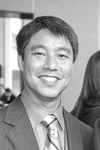
David Inoue
This August will be three years since the movie “Crazy Rich Asians” debuted bearing the hopes of the Asian American community. The sense was that success could open the door to Asian American representation in the movies, but failure could mean another 25 years until another majority-Asian-cast movie would be made by a major studio, as it had already been that many years since the “Joy Luck Club.” Fortunately, “Crazy Rich Asians” would go on to draw nearly $175 million domestically and $239 million worldwide. It seems, there would be a future for Asian representation in cinema.
This seemingly has been fulfilled with the recent Oscar awards. For 2019, though Korean, not Asian American, the film “Parasite” won best picture, director, original screenplay and, of course, international film. And the 2020 best director and picture awards went to Chloe Zhao and “Nomadland,” while Yuh-Jung Youn won best supporting actress for “Minari” amidst multiple nominations for both pictures.
Animation films such as “Raya and the Last Dragon” and “Abominable” also have featured the voices of numerous Asian American actors. The Marvel universe will bring us the “Eternals,” directed by Zhao and featuring the acting of Kumail Nanjiani, Gemma Chan and Don Lee, and Iman Vellani will be appearing as the Pakistani superhero Ms. Marvel in her own Disney+ series, as well as a leading role in the upcoming film “The Marvels.”
On the smaller screen, while ABC’s “Fresh Off the Boat” has sunsetted, a boatload of other new shows have since joined it in presenting Asian leads, including “Never Have I Ever” (Netflix), “To All the Boys” (Netflix), “Nora From Queens” (Comedy Central) and, most recently, a refresh of “Kung Fu” (The CW), featuring a majority-Asian cast to atone for the ridiculousness of David Carradine as the lead in the original version.
This contrast of the original “Kung Fu” series and the new one makes me realize how different the representation my children are exposed to compared to what I experienced at the same age.
In literature, they have so many options for diverse stories and characters. The “Hardy Boys” books that I grew up reading are antiquated in multiple ways. My daughter is able to read the books from the Shibutani Siblings (Maia and Alex) and see a character who shares her first name. My son enjoys “Superman” comics just as much as I did, except he is able to read about Superman protecting a Chinese American family in “Superman Smashes the Klan” by Gene Luen Yang.
As we celebrate Asian Pacific American Heritage Month, it is more apparent that Asians are increasingly and better represented in all facets of media, and, more importantly, Asian actors are being recognized for their contributions artistically.
In combating anti-Asian attitudes and violence, in the long term, our focus is on changing the norm of Asian Americans as foreign. JACL focuses on this by highlighting the dangers of unbridled xenophobia and racism against the Japanese American community during World War II, resulting in one of the worst losses of constitutional rights by Americans in this country’s history.
But, we also do this by emphasizing and celebrating our representation in our pop culture. Our presence in popular TV shows or movies helps to normalize our presence and break the stereotypes that feed prejudice.
The story of Asian immigration may still be shown in the movie “Minari,” or it could be the less “Asian” portrayal of Grace Park’s character in ABC’s “A Million Little Things.” The greater the number of roles occupied by Asian and Asian American actors, the more others will be exposed to the diversity of who we are and what we represent.
We don’t always have to be the hero; in fact, it’s good to see Asian faces as the villain, too — so long as those characters help to break down stereotypes and expand the diversity of who we are. After all, we’re not all “Crazy Rich Asians” either.
David Inoue is executive director of the JACL. He is based in the organization’s Washington, D.C., office.



